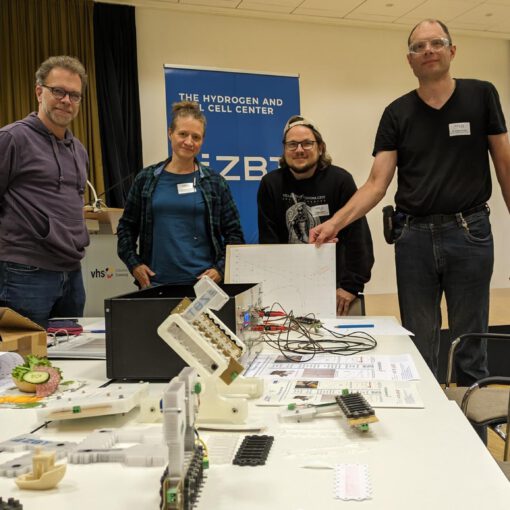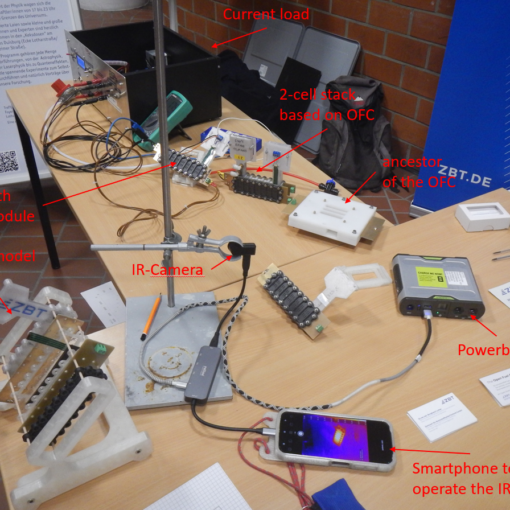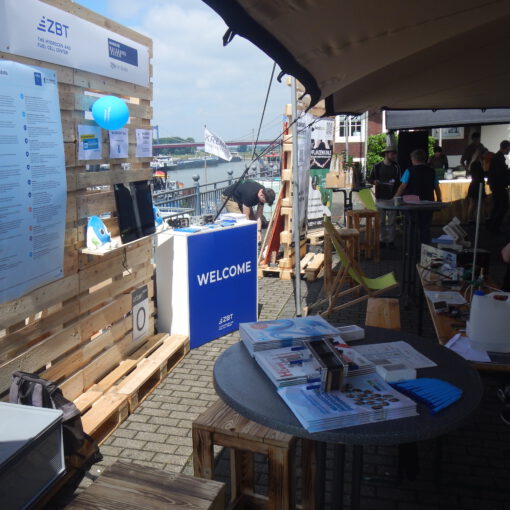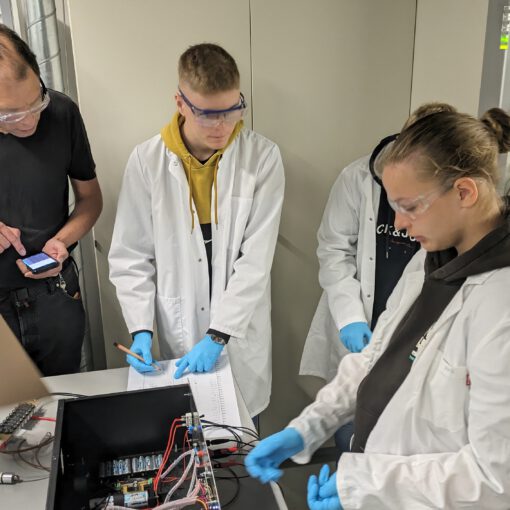At the end of September, Theresa had the opportunity to present the Open Fuel Cell (OFC) platform at the inaugural Open Source Hardware Conference (OSHOP) in Dresden. Organized by TU Dresden, HTW Dresden, and Fraunhofer IWU, the conference brought together over 120 participants from academia, industry, and the maker community to discuss the potential of open hardware for fostering innovation and resilience.
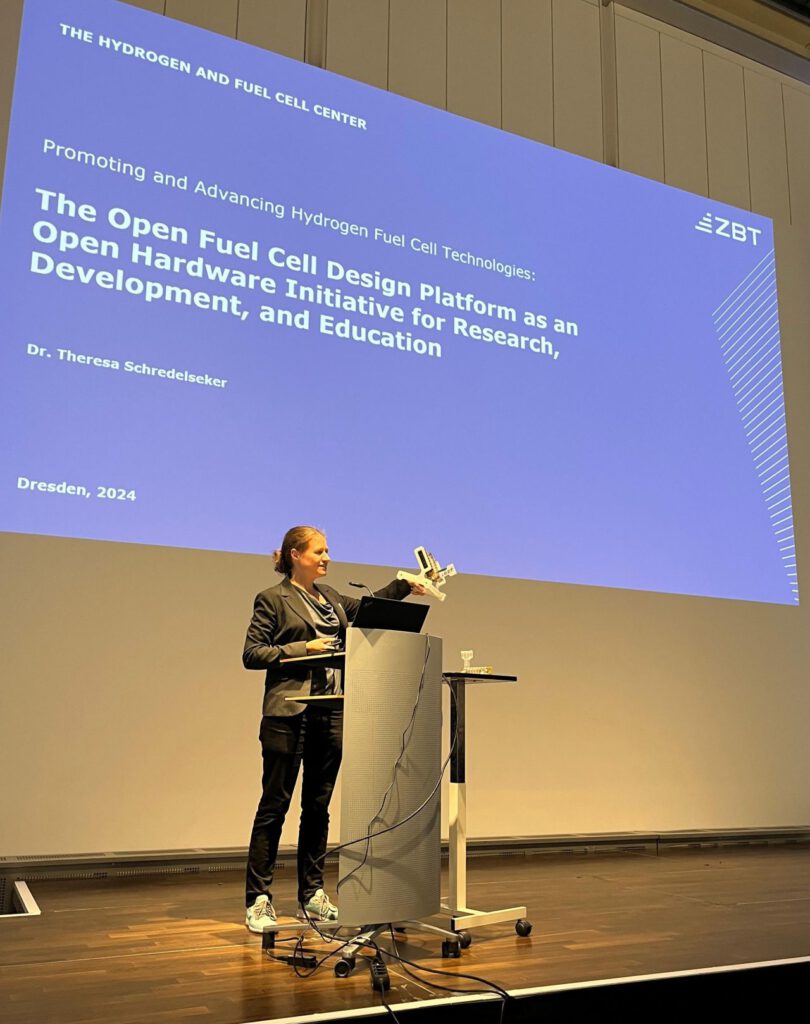
Theresa’s presentation focused on how OFC contributes to transparency and collaboration in fuel cell research, offering an open-source platform for developing hydrogen technologies. One of the key messages was how open hardware reduces reliance on proprietary solutions, giving users more flexibility to adapt and evolve designs—either independently or with the support of the open hardware community.
We’re also proud to have presented our work in a conference paper, which you can read here: https://nbn-resolving.org/urn:nbn:de:bsz:520-qucosa2-944694.
The conference itself was a mix of inspiring talks, hands-on sessions, and engaging discussions. It was clear that open hardware has a vital role to play, not only in creating more sustainable solutions but also in fostering a more circular economy. Events like this underline how co-innovation can drive progress, with communities coming together to improve and adapt designs continuously.
Looking ahead, we’re already excited about the second OSHOP, planned for Chemnitz in 2025. Who knows? By then, we might even have some new developments or updates to the OFC to share.
Thanks to the organizers and everyone who took the time to connect with us in Dresden. We’re looking forward to staying part of this growing community and continuing the conversation about open hardware and its potential to drive meaningful change.
